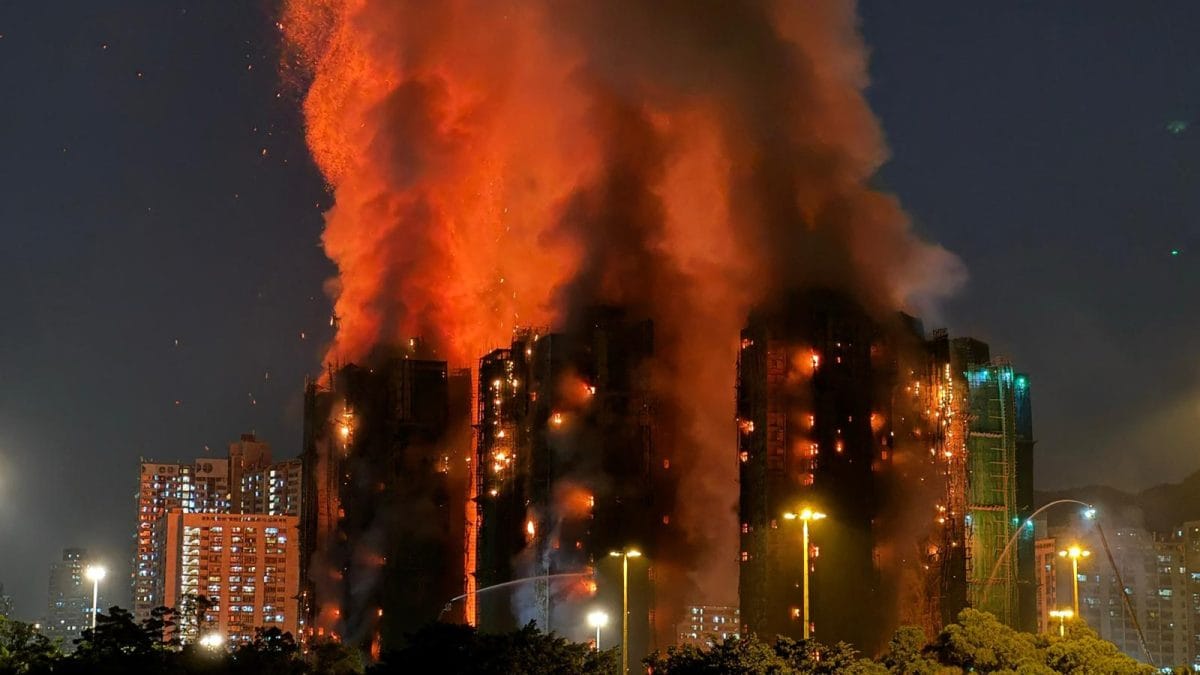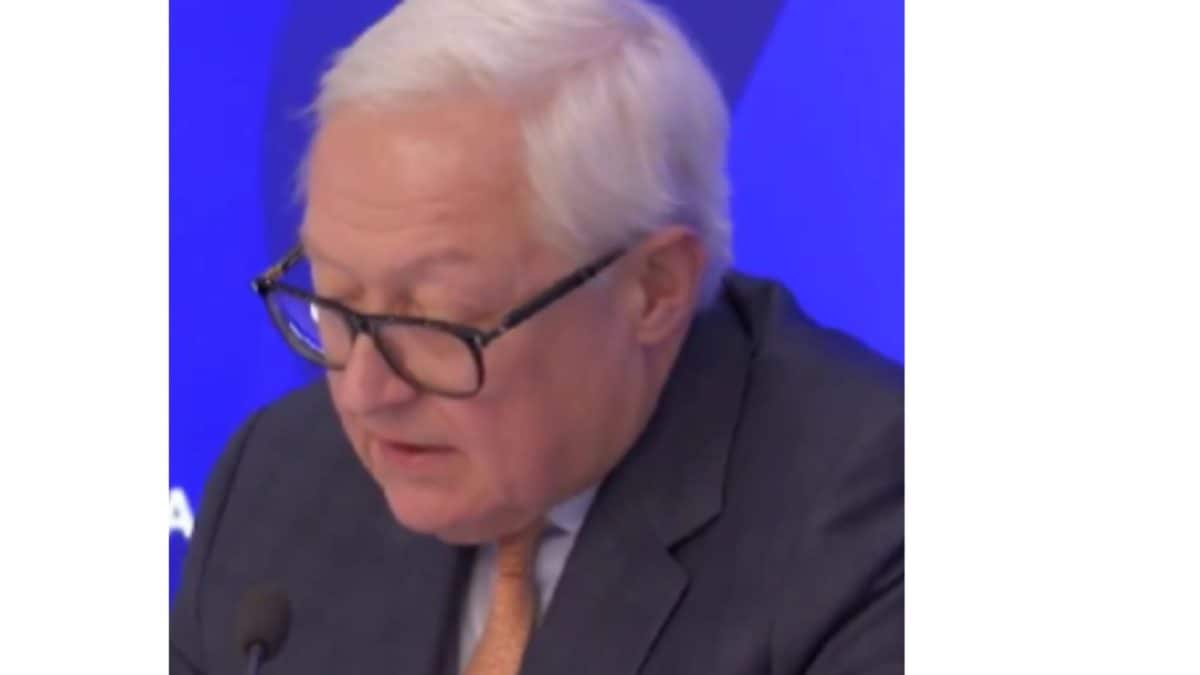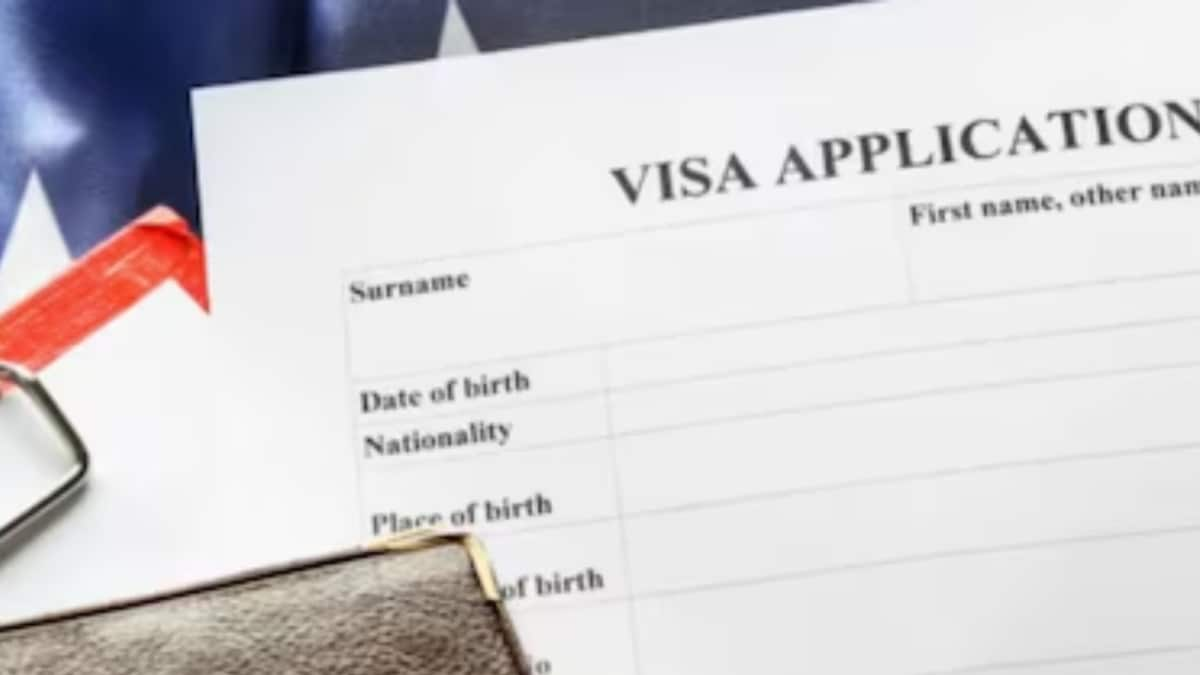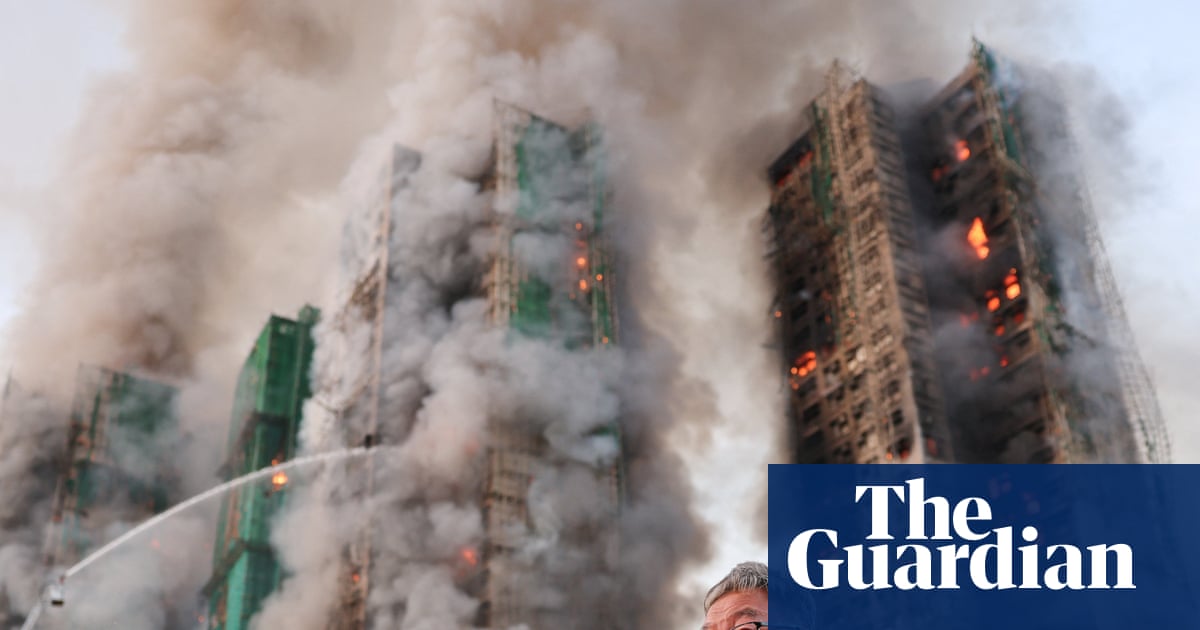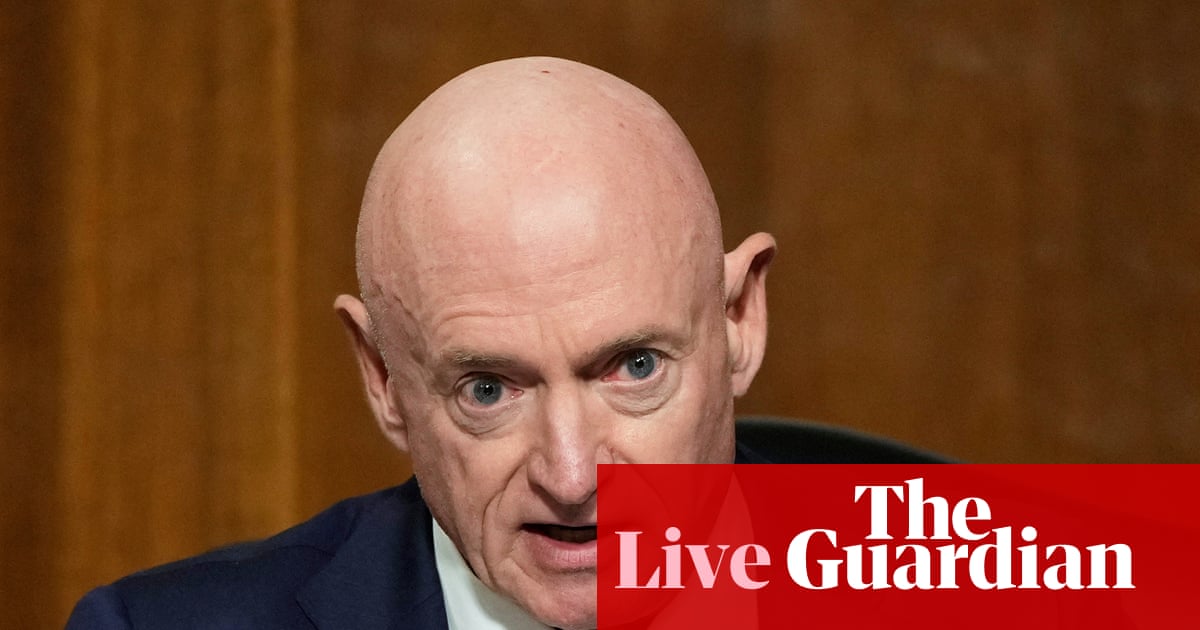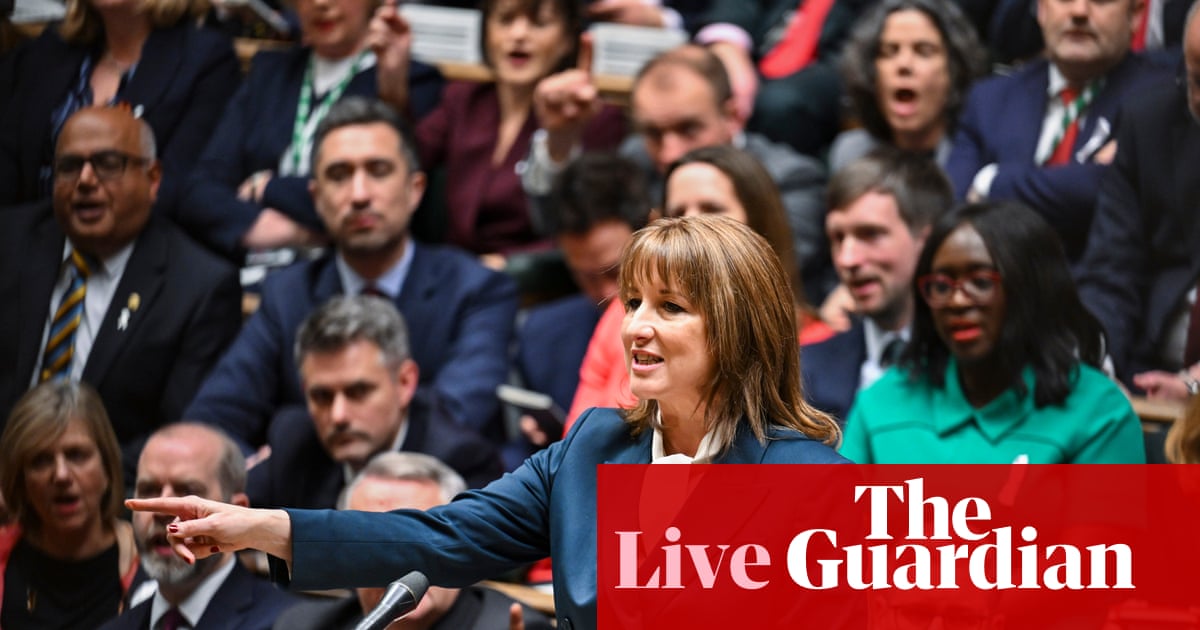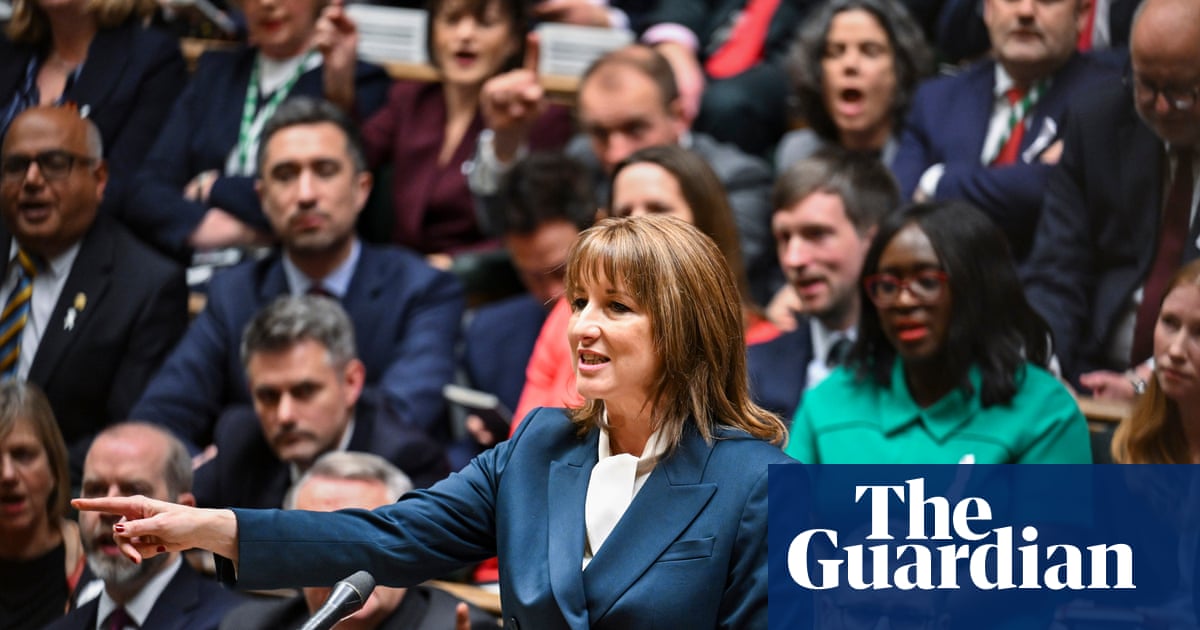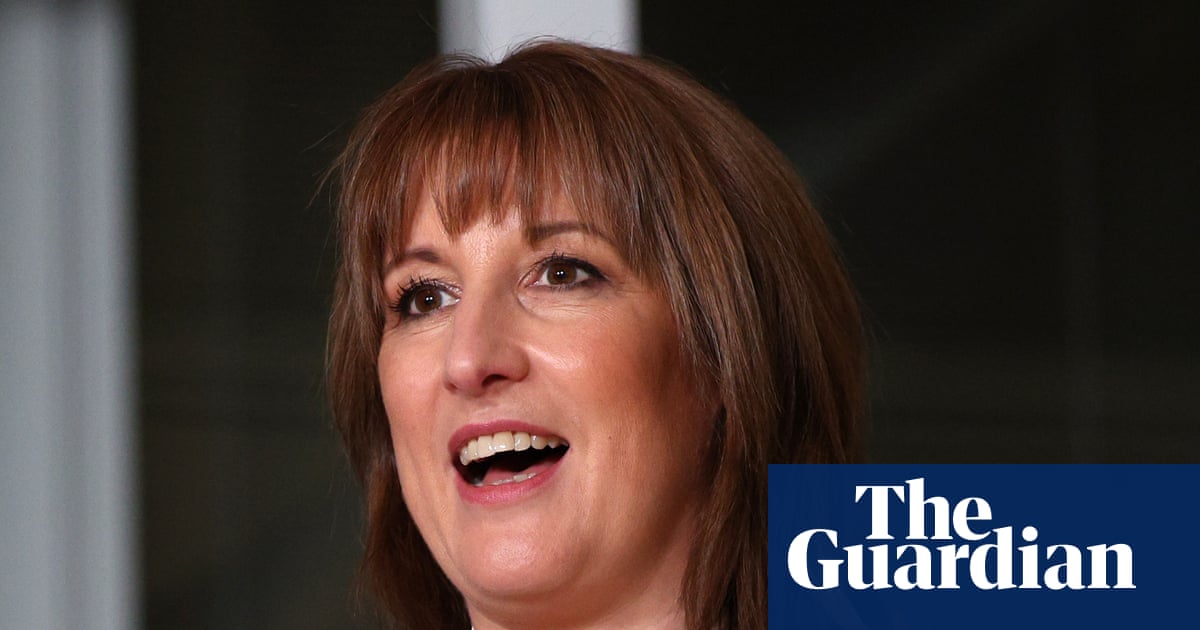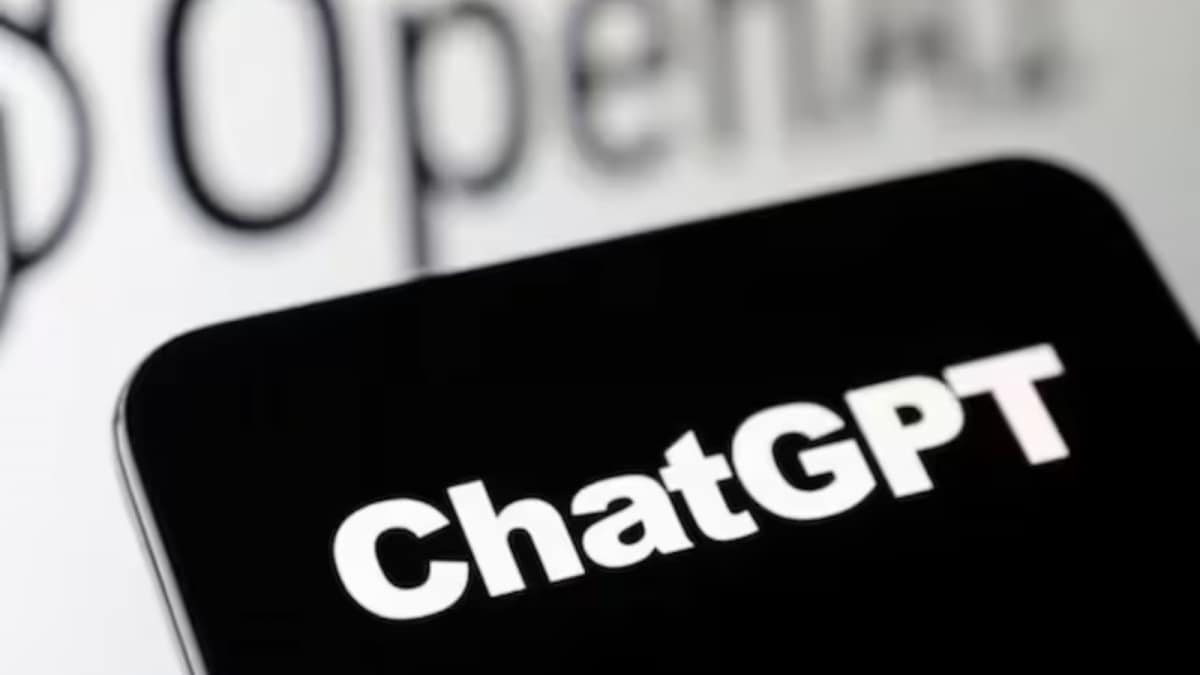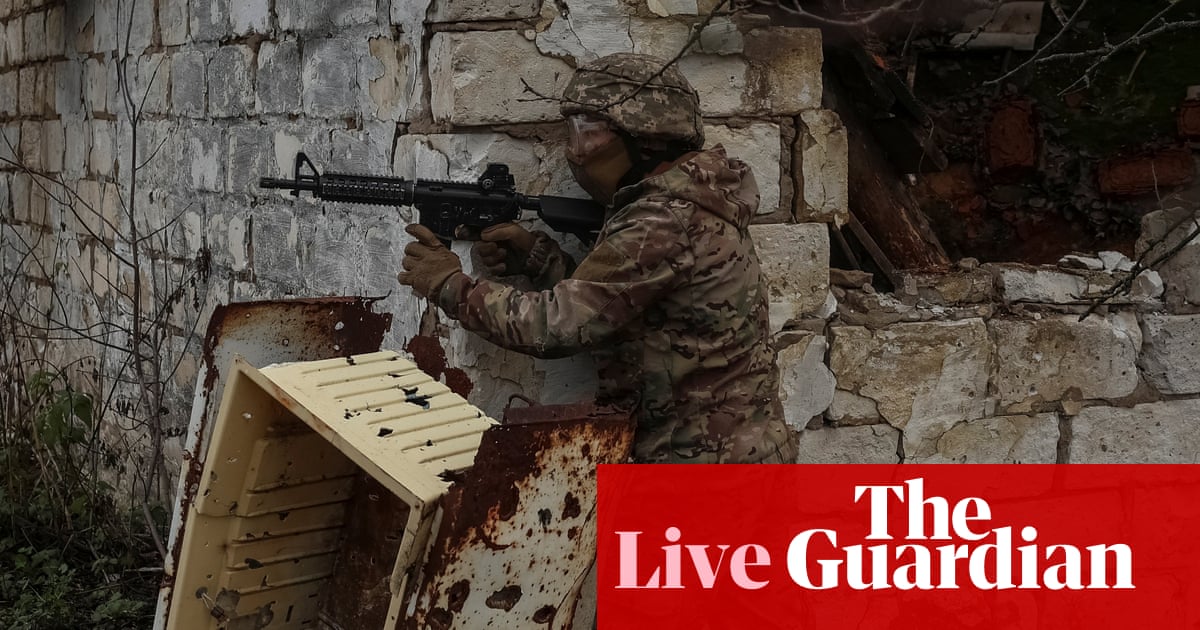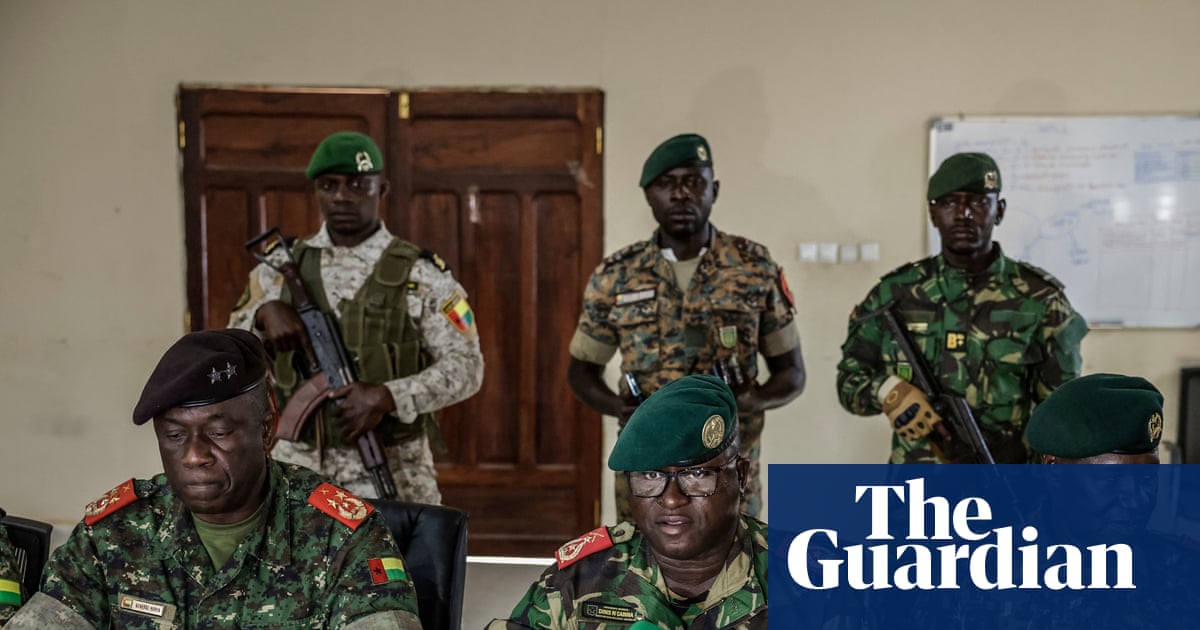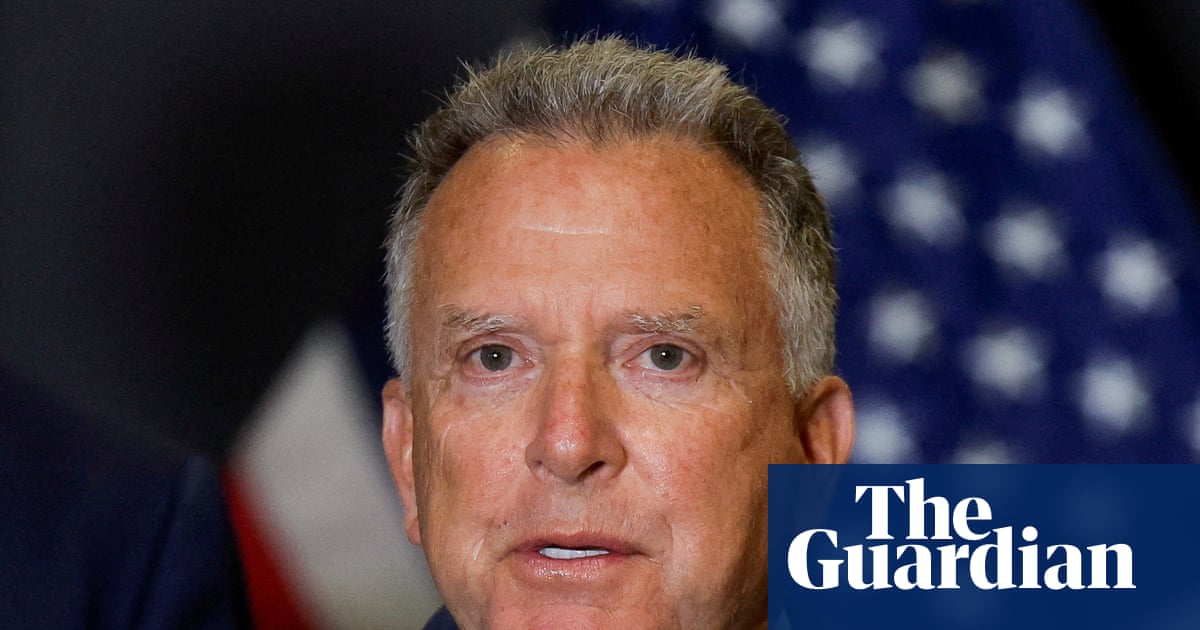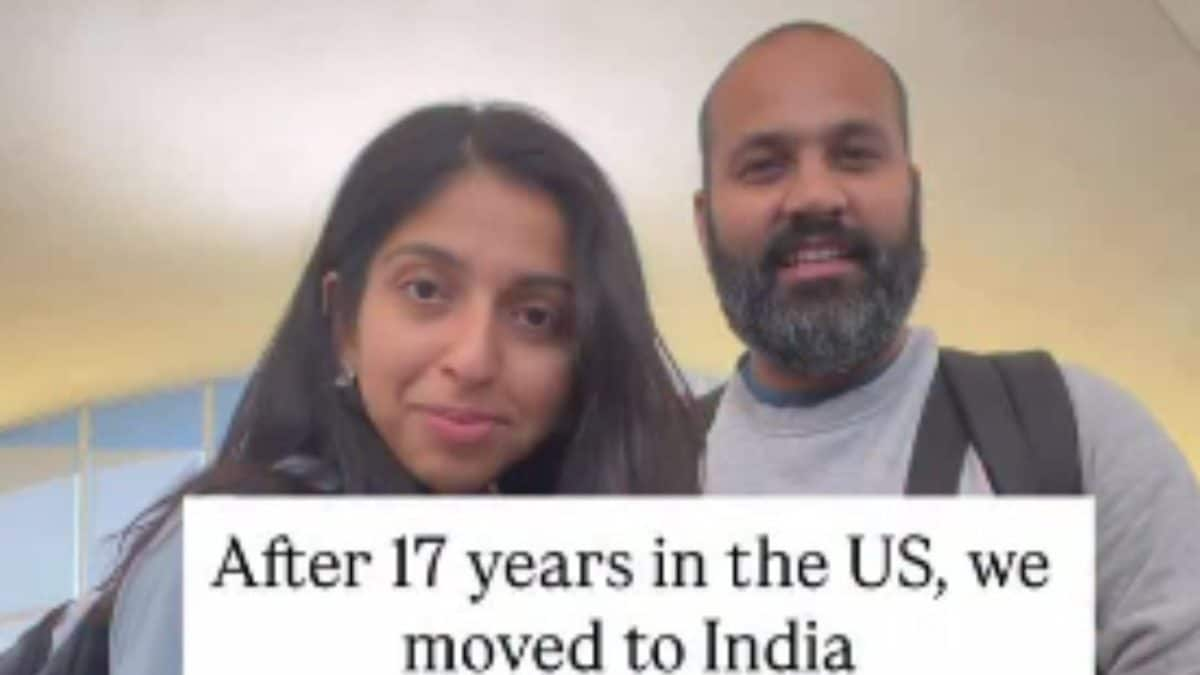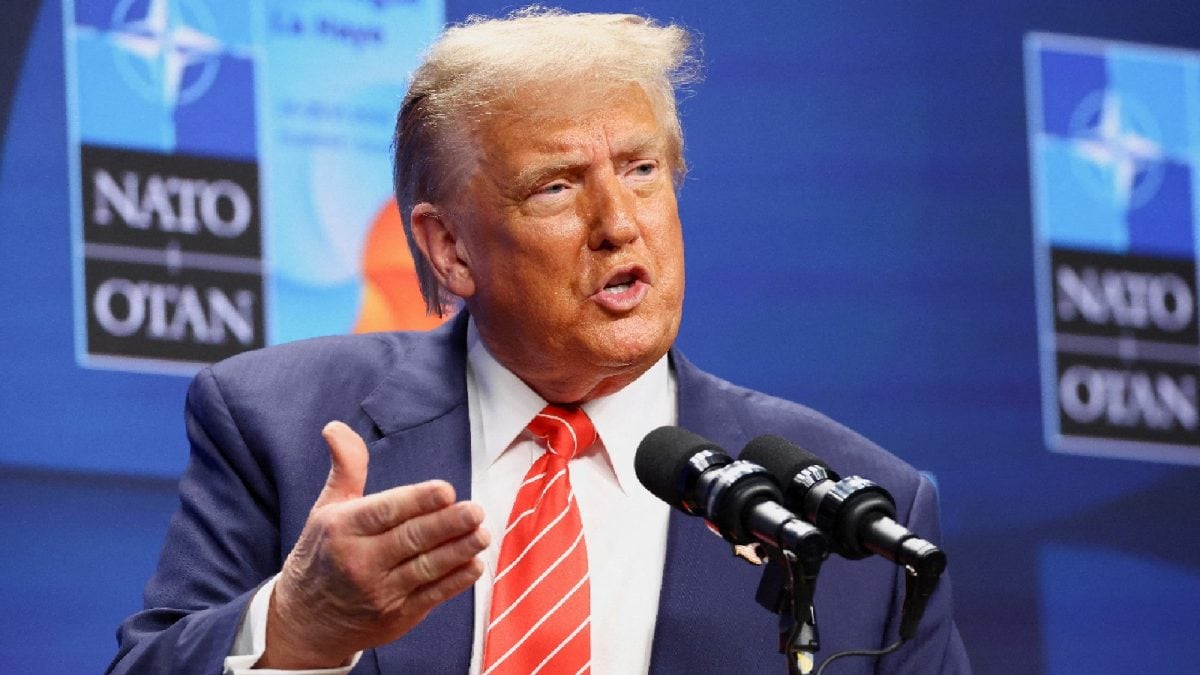The European Commission president has warned against “the unilateral carving up of a sovereign European nation” as Europe scrambles to assert influence over the US’s attempt to end the war in Ukraine.
Speaking to European lawmakers in Strasbourg on Wednesday, Ursula von der Leyen said Russia showed “no signs of true willingness to end the conflict” and continued to operate in a mindset unchanged since the days of Yalta – the much-criticised and misunderstood 1945 summit to settle the postwar order.
“So we need to be clear that there cannot be unilateral carving up of a sovereign European nation, and that borders cannot be changed by force. If today we legitimise and formalise the undermining of borders, we open the doors for more wars tomorrow, and we cannot let this happen.”
The US continues to push for an end to the conflict. Donald Trump’s special envoy Steve Witkoff – who was exposed for coaching the Kremlin on the best way to win the US leader’s favour – is expected to meet Vladimir Putin in Moscow early next week, while the US army secretary, Dan Driscoll, will meet the Ukrainian side.
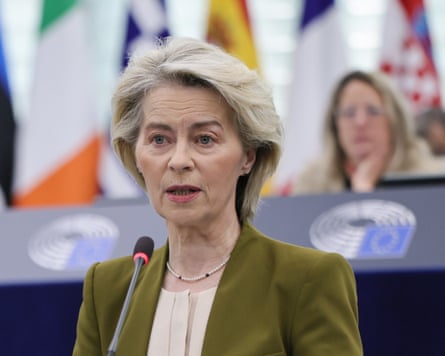
Von der Leyen welcomed Trump’s efforts to find peace, describing them as “a starting point”, but made clear that Europe had many concerns about the details outlined in the original 28-point US-Russian plan. Some of the maximalist Russia-friendly demands have since been removed, Ukraine has said, and the US president has rowed back on his Thursday deadline tied to the US holiday of Thanksgiving amid little sign of progress on key sticking points.
Describing the situation as volatile and dangerous, von der Leyen said she saw “an opportunity here to make real progress”, adding: “So far we have seen no signs from Russia of true willingness to end this conflict. So we have to keep up the pressure on Russia.”
In a hastily arranged video call on Wednesday, EU foreign ministers “reaffirmed our shared principles”, according to Europe’s foreign policy chief, Kaja Kallas, referring to sovereignty, independence, territorial independence and “Ukraine’s inherent right to self-defence”.
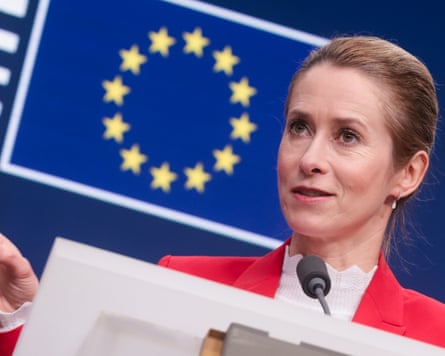
Kallas, a former prime minister of Estonia, said everyone welcomed the US push for peace, before setting out an analysis of the conflict that vastly differed from the worldview informing the 28-point plan.
“Right now we see zero indication that Russia is ready for a ceasefire,” she said. “We still need to get from a situation where Russia pretends to negotiate to a situation where they need to negotiate. We are getting there.”
Kallas referred to the “failed” Russian summer offensive and the impact of western sanctions on Russia’s economy. “The notion that Ukraine is losing is also flat out false. If Russia could conquer Ukraine militarily, it would have already done so by now. Putin cannot achieve its goals on the battlefield, so he will try to negotiate his way there.”
She said that in the last century Russia had attacked more than 19 countries, some three or four times. “So in any peace agreement, we have to put the focus on how to get concessions from the Russian side that they stop the aggression for good and do not try to change borders by force.”
EU officials also argue against limits on Ukraine’s armed forces. Such a restriction would “leave the country vulnerable to future attacks”, von der Leyen said, adding that Ukraine also needed “robust, credible and long-term security guarantees”.
In a leaked recording, Witkoff told a senior Kremlin official last month that achieving peace in Ukraine would require Russia gaining control of Donetsk and potentially a separate territorial exchange. The original 28-point plan called on Ukraine to cede the entire Donetsk region to Russia, including areas under Ukrainian control.
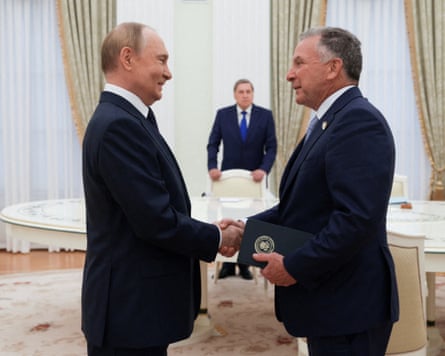
According to a Reuters report citing three sources, the US 28-point plan was drawn from a Russian report submitted to the White House in October. A senior Kremlin aide, Yuri Ushakov, told state TV that Moscow had seen the latest version of the US plan, saying: “Some aspects can be viewed positively, but many require special discussions among experts.”
skip past newsletter promotionafter newsletter promotion
The Kremlin spokesperson, Dmitry Peskov, said on Wednesday that it was premature to speak about striking a peace deal in the near future, Reuters reported.
Ukraine’s president, Volodymyr Zelenskyy, said he had thanked von der Leyen for her messages of support. “We see eye to eye: as long as Russia continues to rebuff all peace efforts, sanctions against it must be tightened and defence and financial assistance for Ukraine must continue.”
Von der Leyen also promised that the European Commission would present a draft legal proposal on using Russia’s frozen assets to fund Ukraine in 2026 and 2027. EU leaders failed to endorse the idea last month because of legal doubts from Belgium, which hosts about €183bn of assets, most of Russia’s sovereign wealth in the EU and two-thirds of the worldwide total.
Trump’s proposal for the US to take 50% profits on a US-led venture to “rebuild and invest in Ukraine” based on $100bn from the Russian frozen assets is adding to pressure on European leaders to resolve the issue. The US also wants Europe to contribute $100bn to the reconstruction investment fund.
Von der Leyen reiterated her support for the frozen assets plan – an EU loan to Ukraine secured on the assets and the idea that Russia would pay reparations to Kyiv – saying: “I cannot see any scenario in which the European taxpayers alone will pay the bill.”
EU leaders will discuss the frozen assets question next month as they try to nail down a 2026-27 funding deal for Kyiv, which is expected to run out of money next spring.
Von der Leyen said another European priority was the return of Ukrainian children forcibly deported to Russia. She said: “There are tens of thousands of boys and girls whose fate is unknown, trapped in Russia by Russia. We will not forget them.”
Ukraine’s government has identified nearly 20,000 children who have been unlawfully deported or forcibly transferred to Russia since the full-scale invasion in 2022. A Ukrainian organisation working on the issue, Bring Kids Back, has said 1,835 children have returned from deportation, forced transfers and occupied Ukraine.
Putin is wanted for alleged war crimes by the international criminal court over the abductions. The original 28-point plan proposed a full amnesty for the actions of all parties involved in the conflict.

 1 hour ago
1 hour ago

